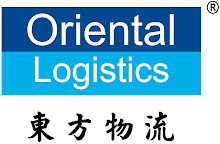When Gilbert Lau started Oriental Logistics Holdings Ltd shortly after the Handover* in 1997, he had just 20 staff, three storeys of storage space and not a single truck or inventory system. Ten years on, his company reaches into 75 cities with a workforce of 300, half a million square-foot of storage space, 50 lorries, 15 container trucks and its own range of operating systems. In that time, the company has expanded into a niche market business providing warehousing for dangerous goods, cargo distribution, and high-end, value-added services such as system design, inventory management, total logistics packages, repacking and international freight forwarding. What's more, Oriental Logistics is asset based, owning much of its own warehousing. It represents phenomenal growth, but Mr Lau's motto is "Success is a journey, but not a destination," so he is not one to rest on his laurels. "If I thought I was successful that would mean I'm satisfied and therefore (would) relax and not be so hard working," says Mr Lau, the company's managing director, at his office in the logistics heartland of Kwai Chung. "We are honest and sincere; we know how to give quality service to our customers. We're very stable and a good quality provider in the market," he says. He praises Hong Kong's business environment for enabling his company to start-up and grow, citing the absence of import duties, simple tax laws and efficient customs clearance. "Bureaucracy here is minimal compared to the Chinese mainland and many other places. Hong Kong is the most stable place to set up a regional depot. People here are also hard-working and smart, they can solve problems right away. They are also bilingual, which is important for a company with overseas clients." | Gilbert Lau has built up Oriental Logistics into a global operation covering 75 cities |
Serving a niche market for dangerous goods and high-end services has proved to be a successful formula | |
| One-stop service | |
After a career spent mostly in the chemical industry for giants such as Bayer Chemicals and ICI, Mr Lau realised there was a gap in the market for storage and transportation of dangerous goods. "There was no one-stop service at that time," he recalls. So he set out to create his own. He re-mortgaged his two properties to raise around HK$6 million (US$760,000) for initial investment and secure a cash flow. Then he persuaded ICI to rent him storage space and outsource its logistics operations to him. He took the staff from ICI's warehouse and began from scratch. "At that time I didn't even know what a DO (delivery order) was," he says. But his experience of stocktaking and handling dangerous goods gave him a good start. The early days were tough, though not because of the financial crisis that engulfed the region. Mr Lau had to deal with the demands of paying customers, the ambivalence of some of his newly acquired staff and the task of developing his own e-commerce systems. He initially worked with outside programmers, but found they could not deliver a system that he wanted so he hired his own team and created unique software. The product is now one of many marketed by Oriental Logistics. | |
| Zero defect | |
Oriental Logistics' second client was Hong Kong's tourism authority, now called the Hong Kong Tourism Board, which required careful storage of its souvenirs, brochures and collaterals, printed in many languages, as well as extensive international distribution. As he developed better software and inventory management with a "zero defect" pledge to cater for such demanding clients, big international names such as DuPont, adidas, Escada and Japanese cosmetics retailer DHC signed up for his services. Logistics companies such as Oriental have leveraged their supply chain management capabilities and systems – which enable clients to track products and check inventories from their computer - to cash in on value-added services required by modern international customers. Mr Lau says export business is growing with US and European firms looking to get products into China's cities. He adds the mainland market is still immature in terms of point to point logistics and margins are very small. Nevertheless, an extensive network is being built to meet growing demand, which includes agents and warehouses in Beijing, Shanghai, Wuhan, Guizhou, Guangzhou and Shenzhen. It's all a far cry from when Mr Lau started out hiring trucks on an ad-hoc basis. But with a company that had the vision to "become the best logistics provider of the decade," it is just part of his successful journey. | |
| * "The Handover" refers to Hong Kong's return from British to Chinese rule on July 1, 1997. | |
(Provided by Oriental Logistics : http://www.orientallogistics.com/newoll04/html/eng/pr/2007/20070918.htm )





沒有留言:
張貼留言